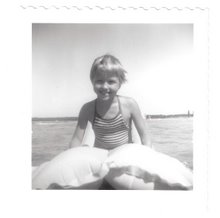Another great TED lecture. While you can just listen to it, you'll miss a lot if you can't see her clever slideshow. (Check out the TED COMMANDMENTS.)
She begins by asking the question "How do we create?"
The following words are Amy's but the emphasis is mine:
We all have intentions when we're faced with a situation, any situation. All of us have a response. We have intentions, what we think we should do. There's ambiguity. What we actually do, and what we think we should do. Do we justify by saying my intentions were good? That's the ambiguity.
You notice disturbing hints from the universe.
They were always there.
When I identify the question, distill the hints, clues, there's focus.
When you're writing, those hints, those clues have always been there. They've been obvious, yet not been. You need a focus. When I have a question, random things, all the flotsam and jetsam, become relevant, become obvious. There's no coincidence, serendipity, in which you're getting all this help from the universe, but you may also explain it by saying you now have focus.
This leads to the question "why am I here?" What is the meaning of my life, what is my place in the universe. We all hate moral ambiguity in some sense, yet it's necessary in writing a story. It's the place where I begin.
Sometimes we get help from the universe. There's the arrival of luck and random chance. Serendipity. Accidents.
I go back to the question, of how do I create my own life? It is by questioning. There are no absolute truths. I believe in specifics, the specifics of story, the specifics of that past and what is happening in this story at that point. By thinking about luck and faith, and coincidences and accidents, God's will, the synchrony of mysterious forces, I will come to some notion of what that is, how we create. I have to think of my role, where I am in the universe, and did somebody intend for me to be that way or is it just something I came up with.
And I also can find that by imagining fully and becoming what is imagined and yet is in that real world, the fictional world, and that is how I find particles of truth not the absolute truth, or the whole truth. And they have to be in all possibilities, including those I never considered before. So there are never complete answers, or rather, if there is an answer, it is to remind myself that there is uncertainty in everything and that is good, because then I will discover something new. And if there is a partial answer, a more complete answer for me, it is to simply imagine. And to imagine is to put myself in that story, until there is a transparency between me and the story that I am creating and that's how I've discovered that if I feel what is in the story, in one story, then I come the closest to feeling compassion. Because for everything in that question of how things happen, it has to do with a feeling. I have to become the story in order to understand a lot of that.
Imagination is the closest thing to feeling compassion. Become that story.
Subscribe to:
Post Comments (Atom)


2 comments:
"There is uncertainty in everything and that is good."
What a surprising way to look at life, but yet how true that is. We are never so alive as when we are learning, and we are never studying so hard as when we are afraid and uncertain.
Thank you for posting this, Pam.
It's the uncertainty that keeps life interesting and challenging.
Glad you liked it!
Post a Comment